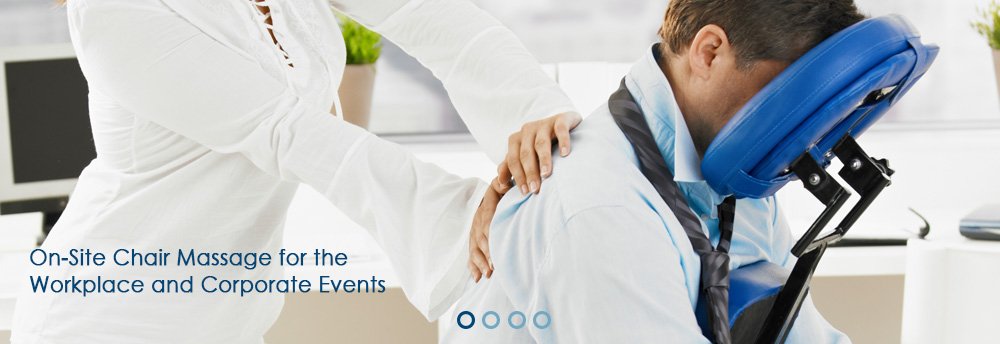
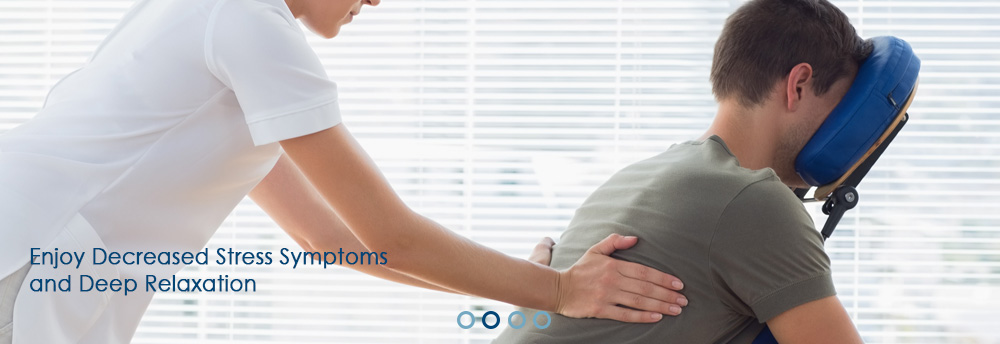
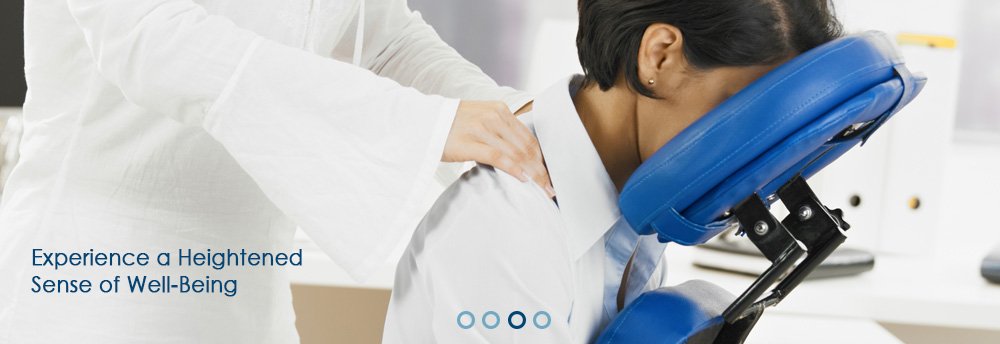
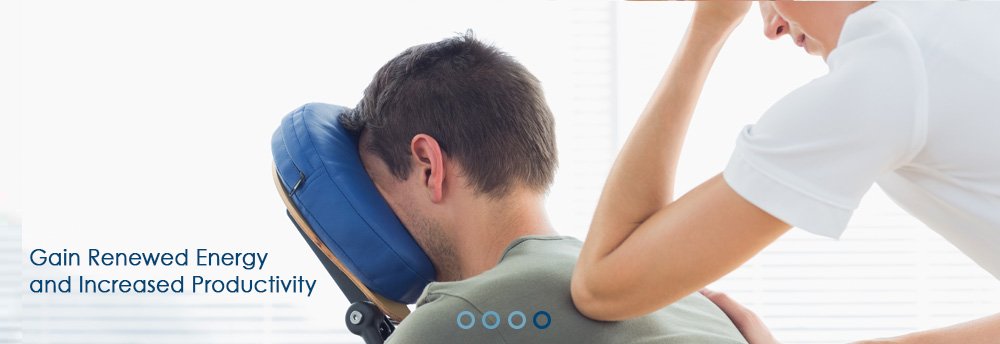
Use these Stress Relief Tips and Techniques to calm down and unwind
Simple and easy to learn stress relief tips and techniques. From a quick-fix stress management technique to longterm lifestyle changes, take advantage of this free advice for a healthier, well-balanced life.
The Definition of "Stress":
A specific response by the body to a stimulus, such as pain or fear, that disturbs or interferes with the normal physiological equilibrium of an organism.
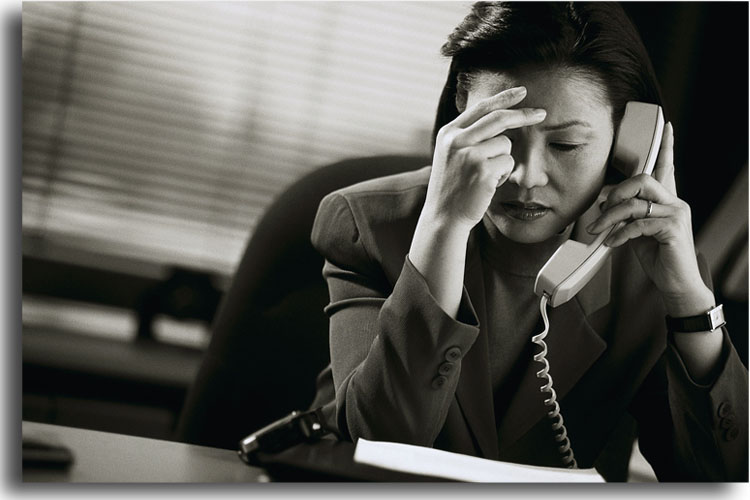
It has been documented that workplace stress is a major contributor to stress related illnesses. Some of the stress relief tips and techniques outlined below are especially suited for the workplace because they can be done anywhere, e.g., sitting at a desk or during a coffee break.
Stress is not unusual or abnormal. It's an everyday occurrance that your body reacts to in either a positive or negative manner. It's basically the preparation of your body to physically move. Your heart rate increases and your breathing becomes faster in anticipation of muscular acitivity.
Stress is the effect your body experiences as it adjusts to ever-changing circumstances. As a positive influence, it can fill you with excitement and propel you into action or provide you with a feeling of happiness. Stress can be a very motivating factor. It allows you to accomplish tasks and set goals and see them through to completion.
Good stress, also called eustress, is caused by the release of chemicals such as adrenalin, endorphin, serotonin and dopamine which are produced in your body and act as natural anti-depressants and pain-relievers.
However, if you don't use up the adrenalin that gets pumped through your system in respone to stress, sooner or later it will physically manifest itself in such negative conditions as muscle tension, headaches, ulcers, high blood pressure and heart disease. It is estimated that 75% to 85% of all medical problems are related to stress.
So what can you do about it? Look through the stress relief tips and techniques below and see what you can incorporate into your lifestyle.
#1 of the Stress Relief Tips
Breathing Exercises
"Sometimes the most important thing in a whole day is the rest we take between two deep breaths."
- Etty Hillesum
Breathing is an easy to learn stress relief technique that's fast, simple and free. It can be done anywhere, anytime and has numerous positive effects on your health such as reducing high blood pressure.
Here's how basic controlled breathing works:
- Sit or stand in a relaxed postion. That means also to relax your abdominal muscles; let it all hang out, so to speak. Don't worry, you're the only one aware of it.
- Slowly inhale through your nose. Fill up your lungs with fresh air and let your abdomen expand outward, rather than raising your shoulders.
- Exhale slowly through your mouth. Pay attention to the exhale. Drag it out for as l--o--n--g as possible.
- Repeat this exercise several times and feel the tension draining from your body.
#2 of the Stress Relief Tips
Exercise
a) Stretching
Watch how a cat stretches after a nap. Sometimes (not often enough) we stretch in a similar manner. It's an overall feel-good movement. Stretch from the fingertips to the toes, including the face (yawning takes care of that). Be careful not to over-stretch though, especially after longer periods of inactivity. Stretching should not hurt.
Remind yourself to stretch at work by writing "STRETCH" on a post-it note and sticking it on the computer monitor frame. Every once in a while you're bound to notice it. Gently stretch the muscles and tendons in your fingers, wrists, neck/shoulders, back, and legs.
If it's available, take a Tai-Chi or Yoga class.
b) Simple Exercises
A very simple exercise and an excellent stress relief technique is walking. It doesn't require a lot of focus and can easily be incorporated into your workday, no matter how pressed for time you are.
When you feel frustrated or anxious, engage in some form of physical activity. Take a brisk walk around the block, through your workplace, or up and down the stairs. Use up the adrenaline that's going through your bloodstream before it negatively affects your health.
#3 of the Stress Relief Tips
Laughter is the best medicine

Laughing reduces the level of stress hormones. It also triggers the release of health-enhancing hormones like endorphines, which are the body's natural painkillers.
Have something in your workplace that automatically makes you smile, like a funny picture or a goofy toy. Keep a joke book at hand and use it often. An extra bonus is that laughter is contagious and it feels great to have a deep belly laugh.
#4 of the Stress Relief Tips
Sleep
Take a nap! Research shows that a 15-30 minute nap in the afternoon increases alertness, improves cognitive functioning and reduces stress.

Adequate night-time sleep is also important. Studies suggest 7 to 8 hours per day, every day. The effects of lost sleep are culumative and can result in impaired: reaction time, vision, information processing, and short-term memory.
#5 of the Stress Relief Tips
Eat well

Eat well-balanced meals and take appropriate Vitamins and Minerals to make sure your body is adequately nurished and healthy.
Maintain a healthy bodyfat/muscle ratio. If necessary, concentrate on loosing fat instead of just loosing "weight". Being skinny doesn't automatically equate being healthy. The rapid weight-loss of starvation diets is mostly due to dehydration and muscle-loss, and can cause weakness and even serious illnesses.
#6 of the Stress Relief Tips
Posture
Remind yourself to maintain basic proper posture. If you sit most of the time, adjust the chair according to your body proportion. Keep your feet flat of the floor. Your ribcage should not rest on the hip joints.
Straighten your spine but don't hyper-extend. Move your shoulders back, and take pressure off the spine in your neck by keeping your head aligned with the rest of the spine.
#7 of the Stress Relief Tips
Massage
Some of the documented benefits of massage are: muscle tension relief, heightened concentration, better sleep, and decreased fatigue, anxiety and depression.
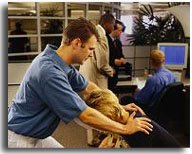
a) Implement a Chair Massage Workplace Wellness Program to combat job stress. It's convenient, fast and instantly relieves muscle tension in stressed-out employees. Contact us for an appointment or more information.
b) If you have the time, treat yourself to a Table Massage.
c) Self Massage. Place two tennis balls in a sock and tie off the end. Stand with your back to the wall, place the balls on either side of your spine. Slowly move up and down in a squatting movement, pressing against the wall and rolling the balls up and down your back.
#8 of the Stress Relief Tips
Watch out for Information Overload
"In your thirst for knowledge, be sure not to drown in all the information."
- Anthony J. D'Angelo
Do you really need to know every detail, be part of every meeting, or read every piece of information you come across? Give your brain a rest.
#9 of the Stress Relief Tips
Prioritize!
Not everything needs to be taken care of right now. Recognize the difference between what is urgent and what is important.
#10 of the Stress Relief Tips
Don't sweat the small stuff.
Simplify your life and learn to say "no". Accept help when it's offered or ask for help if you feel overwhelmed.

Still feel stressed-out? Let us help you. We provide stress relief and instant relaxation to: Accountants, Bankers, Corporate Employees, Doctors, Executives, Healthcare Professionals, Lawyers, Marketing Personnel, Nurses, Performers, Teachers and many other professions in the Greater Toronto Area.
Service available in Canada only.
